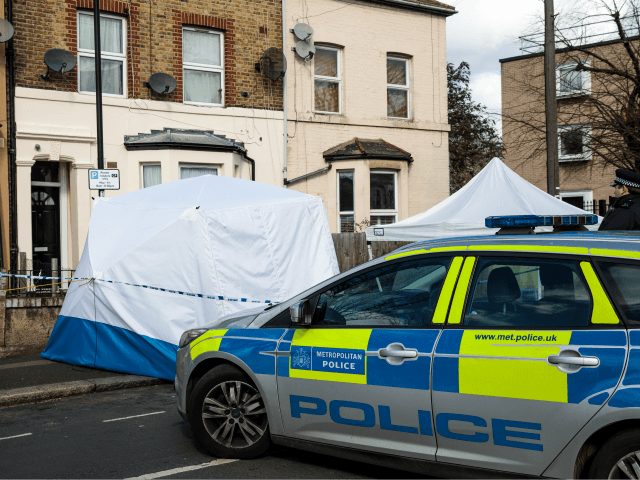“Higher-harm” crimes committed with knives have risen 49 per cent in less than a decade and is now at a historic high, the Office for National Statistics (ONS) has revealed.
The number of police-recorded crimes categorised under ‘knife or sharp instrument offences’ rose seven per cent in a year, according to the latest set of government statistics that cover the year up to December 2019. The rise took the total number of knife offences to 45,627, the highest on record, and 49 per cent higher than “when comparable recording began” in 2010-11.
The crime classification of knife or sharp instrument offences is separate from simple knife-carrying offences and relates specifically to attacks, the ONS said, with “assault with injury and assault with intent to cause serious harm” and robberies accounting for 88 per cent of the crimes recorded under the category.
Comparing longer-term trends in violent crime in the United Kingdom can be difficult because the government frequently changes the definitions by which crime is recorded — for instance with knife crime, where they were last redefined less than a decade ago. Before 2011, recording knife crime had last been changed in 2007.
Research by the House of Commons library takes a longer view of crime in the United Kingdom and shows the remarkable rise of crime over the 20th century. The report notes that crimes per capita quadrupled from 101 per 100,000 population to 1950, and then doubled again in just a single decade, the 1960s.
Part of this rise, the report notes, is the rising number of laws making new activities criminal for the first time, and a rise in prosperity making people’s possessions more valuable. But overall, the report declines to suggest whether a 40-fold increase in recorded crime in the 90 years to 1990 could be attributed to an actual rise in “real” crime.
In 2020, nationwide homicide with a knife or sharp instrument fell eight per cent in the latest statistical year. This is despite a 13 per cent increase in knife homicides in London during that period, equalled out by a fall in crime elsewhere. Crime in London has become a major concern in recent years, with knife crime reckoned at the time of the third anniversary of Mayor Sadiq Khan having taken office having risen 52 per cent in that time.
One feature of knife crime in the United Kingdom is how despite the number of stabbings continue to rise year on year, the number of actual murders does not necessarily rise at the same rate. This has been attributed to the improving quality of hospital trauma teams in London and other metropolitan areas, which are often bolstered by the experience of army surgeons with combat medicine experience from warzones Afghanistan and Iraq.
In other words, London hospitals are now so good at saving the lives of stab victims, many who would have become murder victims in previous years are removed from the headline-grabbing overall murder rate. While this is good news for people who have already become victims of knife crime, it remains the case that murder can be proven to be falling not because the streets are actually safer, but because hospitals are better.
As Breitbart London reported in 2018:
…significant increases in survival rates for major trauma over the last ten years, as surgeons have adopted battlefield techniques developed in foreign war zones for use in domestic hospitals, and adopted basic best practice such as routine use of tourniquets.
The establishment of Major Trauma Networks in 2012 managed to increase the chances of surviving a major trauma injury by 20 per cent by 2013, and by an astonishing 50 per cent by 2015.
The London Air Ambulance charity — which attended more stabbings and shootings than road traffic collisions for the first time in its 30-year history last year — has also been significantly expanded in recent years, launching a second helicopter in 2016.
Despite the continued rise of knife crime in the United Kingdom, the figure may fall in 2020. Since these statistics were collected, life in the nation has changed radically. With millions of people confined to their homes for all but a vanishingly small number of reasons, and police visibly patrolling streets in numbers apparently not seen for decades, future criminal statistical bulletins covering 2020 may show a significant fall in certain types of crimes, like stabbings and thefts.
In some areas, criminal statistics are available much more quickly than for the previous year, and British newspaper The Guardian reported in March that crime was seen to fall by as much as a fifth in the first week of the coronavirus lockdown. Commenting on the fall in recorded crimes in the Durham force area, a police and crime commissioner quoted by the report noted: “Some people rely on shoplifting to fund their drug habit. That’s harder as the shops are closed.”

COMMENTS
Please let us know if you're having issues with commenting.